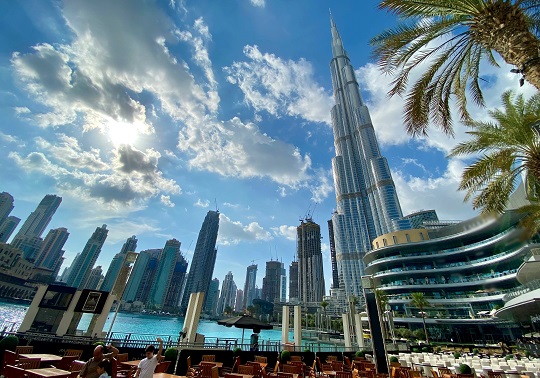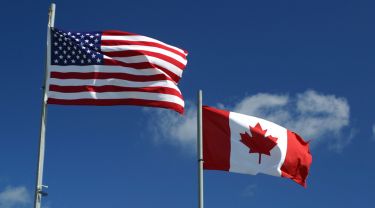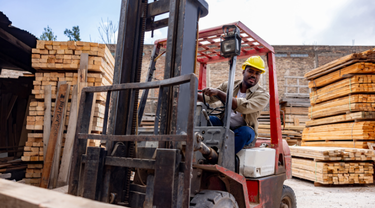

MyEDC account
Manage your finance and insurance services. Get access to export tools and expert insights.
Solutions
By product
By product
By product
By product
Insurance
Get short-term coverage for occasional exports
Maintain ongoing coverage for active exporters

Learn how credit insurance safeguards your business and opens doors to new markets.

See how portfolio credit insurance helped this Canadian innovator expand.
Guarantees
Increase borrowing power for exports
Free up cash tied to contracts
Protect profits from exchange risk
Unlock more working capital

Find out how access to working capital fueled their expansion.
Loans
Secure a loan for global expansion
Get financing for international customers
Access funding for capital-intensive projects

Find out how direct lending helped this snack brand go global.

Learn how a Canadian tech firm turns sustainability into global opportunity.
Investments
Get equity capital for strategic growth

Explore how GoBolt built a greener logistics network across borders.
By industry
Featured

See how Canadian cleantech firms are advancing global sustainability goals.

Build relationships with global buyers to help grow your international business.
Resources
Popular topics
Explore strategies to enter new markets
Understand trade tariffs and how to manage their impact
Learn ways to protect your business from uncertainty
Build stronger supply chains for reliable operation
Access tools and insights for agri-food exporters
Find market intelligence for mining and metals exporters
Get insights to drive sustainable innovation
Explore resources for infrastructure growth
Export stage
Discover practical tools for first-time exporters
Unlock strategies to manage risk and boost growth
Leverage insights and connections to scale worldwide

Learn how pricing strategies help you enter new markets, manage risk and attract customers.

Get expert insights and the latest economic trends to help guide your export strategy.
Trade intelligence
Track trade trends in Indo-Pacific
Uncover European market opportunities
Access insights on U.S. trade
Browse countries and markets
Get expert analysis on markets and trends
Discover stories shaping global trade
See what’s ahead for the world economy
Monitor shifting global market risks
Read exporters’ perspectives on global trade
Knowledge centre
Get answers to your export questions
Research foreign companies before doing business
Find trusted freight forwarders
Gain export skills with online courses
Get insights and practical advice from leading experts
Listen to global trade stories
Learn how exporters are thriving worldwide
Explore export challenges and EDC solutions
Discover resources for smarter exporting
About
Discover our story
See how we help exporters
Explore the companies we serve
Learn about our commitment to ESG
Understand our governance framework
See the results of our commitments
MyEDC account
Manage your finance and insurance services. Get access to export tools and expert insights.

In this blog post:
During these challenging times due to the COVID-19 pandemic, Export Development Canada remains committed to helping Canadian businesses. In this series, we share first-hand insights about markets around the world and how they’re being impacted by the global health crisis. Today, we visit Jean-Bernard Ruggieri, our chief representative for the Middle East, based in Dubai.

The main markets of the Middle East, commonly called the Gulf Cooperation Council (GCC), including Bahrain, Kuwait, Oman, Qatar, Saudi Arabia and United Arab Emirates (UAE), have reacted quickly to the pandemic with the interruption of all flights, airport closures, lockdowns and strict curfews.
These countries have also imposed quarantines for travellers (citizens and expatriates), conducted one of the largest campaigns of testing (UAE ranks third in the world per million inhabitants tested and intends to test all its residents) and launched tests of innovative new medical treatments and screenings of the disease.
Death rates have been low compared to other parts of the world, like Europe and North America, and GCC countries are now starting to ease restrictions, but with very clear and strong rules regarding social distancing and protection.

The Middle East, especially the GCC, is facing a double sector crisis:
In the Middle East, personal relationships are extremely important to conducting business and winning contracts. With restrictions in place—no physical meetings and no flights available to visit the markets—Canadian companies must put most of their business development on hold and as mentioned above, many important projects in the region are frozen until further notice. But there are also some new opportunities: the local governments have clearly disclosed their intention to handle other potential waves of the pandemic by focusing on the health sector. New hospital construction projects have already been announced with plans to purchase the related material equipment. As well, food security is on their radar since almost all food is imported from different parts of the planet.

Our network shows resilience and patience, understanding that a new normal will land and they’ll need to adapt. We still get requests and questions about business opportunities for this region, which shows Canadian companies are thinking ahead and beyond the present crisis.
We’re staying in touch with our customers, of course, but also with their buyers—existing or potential. For example, we informed the main players in the market that EDC has deployed the EDC Business Credit Availability Program (BCAP) Guarantee to help Canadian companies and their suppliers. In this way, we can reassure the local buyers they can still operate and sign new contracts with our customers without worrying about the strength of their supply chain partners from Canada. We also continue to work closely with the local Canadian diplomatic missions’ trade services to gather useful information for our clients such as future projects and contracts, in preparation for getting back to business as usual.

Discover Canadian tariffs on U.S. goods, CUSMA review and EDC support for managing trade risks.

Global growth stabilizes but faces ongoing policy shifts, tariffs and geopolitical uncertainty.

Keep track of the international markets that matter to your business. Get the latest financial and macroeconomic information for both developed and emerging markets.

Tariffs and inflation weigh on growth in the U.S., Canada and Mexico in 2026.

Globalization is evolving, not reversing, as technology and trade keep the world connected.